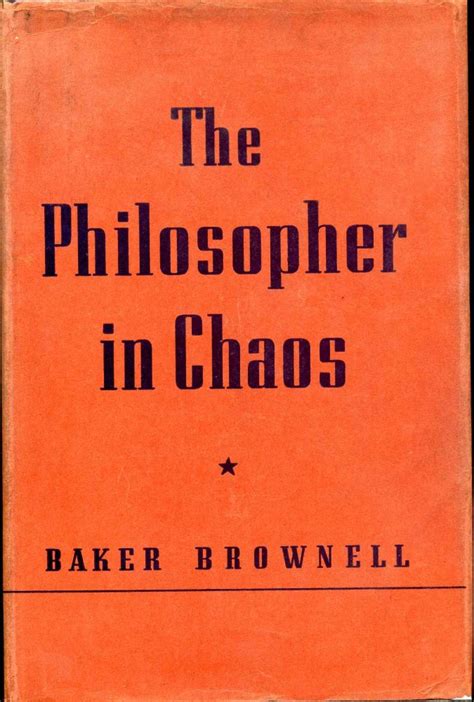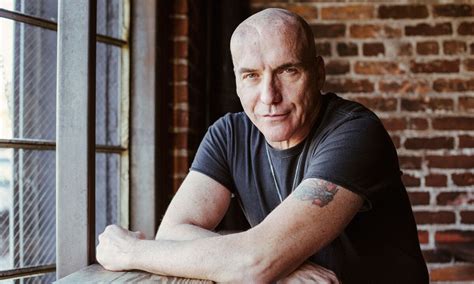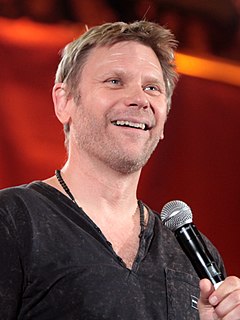A Quote by Margaret Mead
In every human society of which we have any record, there are those who teach and those who learn, for learning a way of life is implicit in all human culture as we know it. But the separation of the teacher's role from the role of all adults who inducted the young into the habitual behavior of the group, was a comparatively late invention. Furthermore, when we do find explicit and defined teaching, in primitive societies we find it tied in with a sense of the rareness or the precariousness of some human tradition.
Related Quotes
In undeveloped social groups, we find very little formal teaching and training. Savage groups mainly rely for instilling needed dispositions into the young upon the same sort of association which keeps adults loyal to their group. They have no special devices, material, or institutions for teaching save in connection with initiation ceremonies by which the youth are inducted into full social membership. For the most part, they depend upon children learning the customs of the adults, acquiring their emotional set and stock of ideas, by sharing in what the elders are doing.
In their overestimation of the role of civilization, the humanists misunderstand the primary forces of the world of primitive human drives with their untamable violence. With their optimistic view of the role of culture, they (the humanists) trivialize the terrifying, hardly solvable problems of mass hatred and of the great passionate psychoses of the human race.
No science of any kind can be divorced from ethical considerations... Science is a human learning process which arises in certain subcultures in human society and not in others, and a subculture as we seen is a group of people defined by acceptance of certain common values, that is, an ethic which permits extensive communication between them.
Art arises in those strange complexities of action that are called human beings. It is a kind of human behavior. As such it is not magic, except as human beings are magical. Nor is it concerned in absolutes, eternities, "forms," beyond those that may reside in the context of the human being and be subject to his vicissitudes. Art is not an inner state of consciousness, whatever that may mean. Neither is it essentially a supreme form of communication. Art is human behavior, and its values are contained in human behavior.
Human rights are standards of behavior that are inherent in every human being. They are the core principles underpinning human interaction in society. These include liberty, due process or justice, and freedom of religious beliefs. I find little sympathy with efforts to try to equate Internet access with these higher, fundamental concepts.
If life is to be fully human it must serve some end which seems, in some sense, outside human life, some end which is impersonal and above mankind, such as God or truth or beauty. Those who best promote life do not have life for their purpose. They aim rather at what seems like a gradual incarnation, a bringing into our human existence of something eternal, something that appears to imagination to live in a heaven remote from strife and failure and the devouring jaws of Time.
Therapy isn't curing somebody of something; it is a means of helping a person explore himself, his life, his consciousness. My purpose as a therapist is to find out what it means to be human. Every human being must have a point at which he stands against the culture, where he says, "This is me and the world be damned!" Leaders have always been the ones to stand against the society - Socrates, Christ, Freud, all the way down the line.
How to become a really modern society when today we are so - as a human being, we feel so powerful. We have high technology and a superb way of controlling our life. And at the same time, in many ways we are so primitive. We are not on - even just a step away from the most brutal and primitive crudity. To be very crude on those issues, which is always challenges and we always have to look at the situation like a mirror, to draw some understanding.
Those social behaviors which automatically preclude the building of a democratic world must go - every social limitation of human beings in terms of heredity, whether it be of race, or sex, or class. Every social institution which teaches human beings to cringe to those above and step on those below must be replaced by institutions which teach people to look each other straight in the face.
Here's an easy one: "Race is an entirely social construct." No, it's partially one, depending on how any given society seeks to define it and its implications. But there are basic things such as skin color and hair texture. Even a Martian who'd had no exposure to human "social constructs" would be able to spot those differences. But no Martian, as hard as he tried, could point at a "culture" or to "equality." Those are the social constructs. Those can't be measured in the same way as human DNA.




































